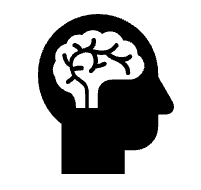
Emotional intelligence
Self-Awareness
What is Self-awareness
Self-awareness is a profound exploration of one’s inner world, a journey into the depths of the mind and heart to understand the intricate tapestry of thoughts, emotions, motivations, and behaviors. It’s the core of personal growth, offering individuals a clear and honest view of their strengths, weaknesses, beliefs, and values.
Through self-awareness people gain the capacity to navigate life’s challenges with resilience, make informed decisions aligned with their authentic selves, and cultivate meaningful connections with others. It’s a transformative process that empowers people to unlock their full potential and embark on a lifelong pursuit of self-improvement and fulfillment.
By understanding oneself deeply, individuals can develop a greater sense of empathy, compassion, and acceptance for others. Self-awareness is not merely a destination but a continuous process of growth and discovery, inviting people to embrace their true selves and life a life of authenticity and purpose.
Emotions
Understanding your emotions is critical to mental health
Emotions are complex responses to stimuli that involve a blend of physical, mental, and behavioral reactions. They are our body’s way of interpreting and responding to the world around us. Emotions can range from positive feelings like joy and love to negative ones like anger and sadness. They can occur by various attributes, including our thoughts, memories, and physiological changes. Emotions play a crucial role in our lives, shaping our decisions, relationships, and overall well-being.
Comprehend emotions
You must be able to comprehend others emotions
Comprehension of emotions is a cornerstone of human connection and well-being. Begin by acknowledging your feelings without judgement, allowing yourself to experience them fully. Explore the physical sensations associated with each emotion, as they offer valuable insights. Consider the thoughts and memories that arise, understanding their influence on your emotional state. Effective communication involves expressing your emotions clearly and assertively, fostering empathy and understanding emotions. Building emotional intelligence requires self-awareness, allowing you to recognize patterns and triggers. Mindfulness practices can enhance emotional regulation, enabling you to respond rather than react. Remember, emotions are valid and ever-changing, and seeking support from trusted individuals can aid in navigating complex emotional landscapes.
Why are emotions important?
Emotions are the compass of our lives. They are essential for human connections, motivation, and survival. Emotions help us understand and respond to the world around us, fostering empathy and compassion. They fuel our passions, drive our goals, and enrich our experiences. While challenging emotions can be difficult to manage, they also provide valuable insights into our inner world. Ultimately, emotions are the vibrant colors that paint the canvas of our existence.
-
Honest Expression
Write down exactly how you feel, without filters or fears of judgement. Use vivid language to describe your emotions.
-
Explore the source
Dig deeper into the cause of your feelings. What triggered the emotions? How does it connect to past experiences?
-
Challenge Negative thought
Identify negative thought patterns. Question these thoughts and replace them with more positive and realistic perspectives.
-
Set goals
Use your journal to set goals. For example, you might aim to practice patience, manage your anger, goals for getting financial freedom or physically healthier more effectively.
How to use emotions effectively?
Emotions are valuable tools because they provide essential information about our internal world and guide our behavior. By recognizing and understanding our emotional response, build deeper connections with others and navigate life’s challenges with greater resilience. Expressing emotions authentically can foster open communication and empathy. It’s important to manage intense emotions constructively to avoid harm to oneself or others. By developing emotional intelligence, we can learn to channel our feelings into positive actions and create a fulfilling life. Using emotions effectively involves managing your own feelings, understanding and responding to others’ emotions and harnessing the emotional energy to achieve goals. It’s about finding balance and expressing yourself appropriately. Emotions are neither good nor bad; they are simply information. By understanding and utilizing them, we can enhance our ability to concentrate and achieve our goals.
Benefits of strong self-awareness
Improved relationships
Strong relationships serve as a crucible for self-awareness, refining our understanding of emotions through the lens of others’ reactions. This reciprocal exchange deepens emotional intelligence by highlighting our impact and giving empathy, essential components of strong connections.
Better communication
By articulating feelings clearly and actively listening to others, we create a safe space for emotional connections. This exchange fosters empathy and mutual respect, strengthening bonds and deepening self-awareness.
increased resilience
Increased resilience emerges from the foundation of emotional intelligence. By understanding our emotional landscape, we develop adaptive coping mechanism to navigate challenges. Strong relationships provide a safety net, offering support and perspective during tough times. This fortified emotional foundation empowers individuals to bounce back from adversity with greater strength and determination.
stronger leadership skills
Understanding and managing personal emotions, leaders inspire trust and create a supportive environment. Effective communication and empathy build strong teams, while resilience promotes perseverance through challenges. This emotional acumen empowers leaders to make informed decisions, navigate complexities, and inspire others towards shared goals.
greater overall well-being
Greater overall well-being flourishes when emotional intelligence is cultivated. By understanding and managing emotions, individuals experience reduced stress, increased resilience, and improved mental health. Strong relationships provide a support network, fostering a sense of belonging and purpose. This holistic approach to emotional well-being enhances life satisfaction, creating a foundation for personal growth and fulfillment.









